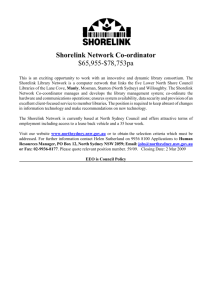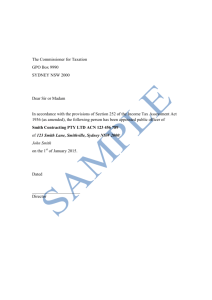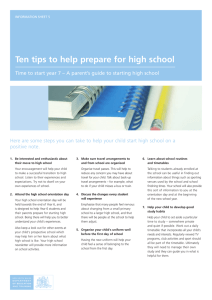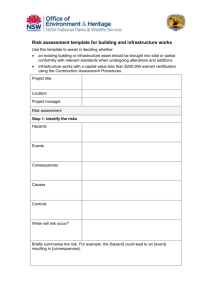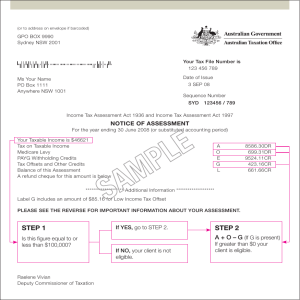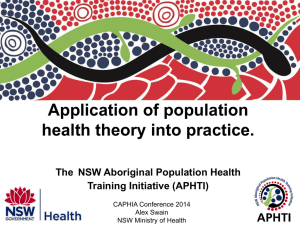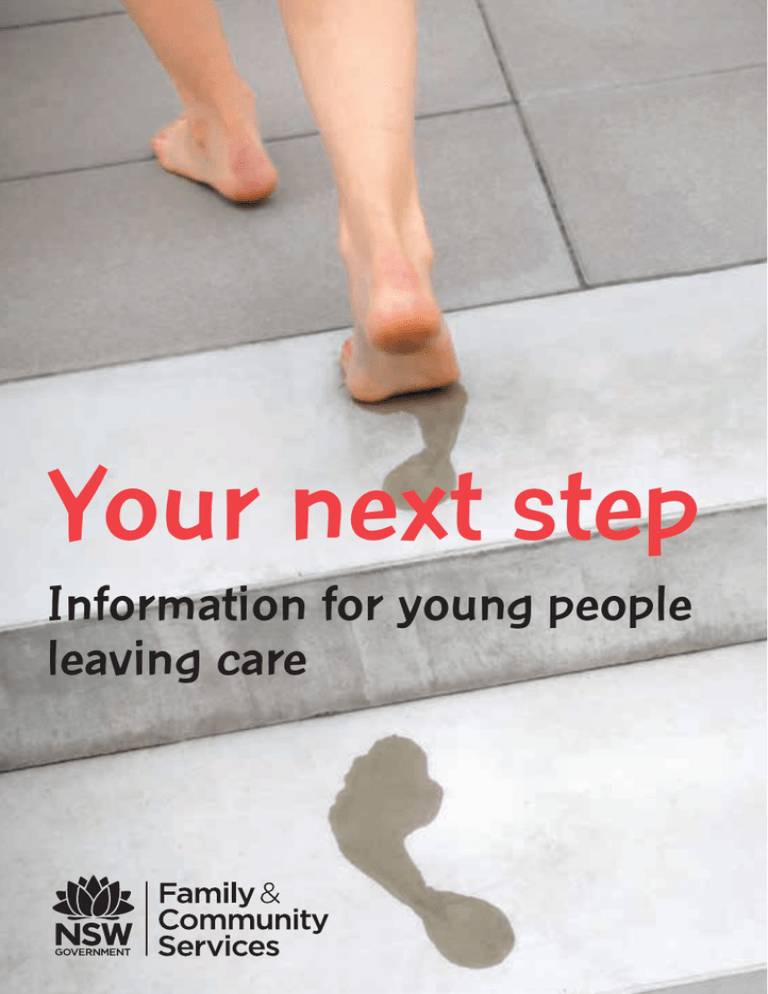
Your Next Step
Your next step
Information for young people leaving
care
Information for young people
leaving care
Table of contents
What’s ahead? 3
What help am I entitled to? 4
What do I want in my leaving care plan? 5
How ready am I for leaving care? 6
Money
8
Housing and accommodation
12
Education and training 14
Employment
16
Health and wellbeing
2
18
Your rights, records and identity
20
Aftercare services
22
More useful contacts 23
My contacts
24
What’s ahead?
Learning to look after yourself and solve life’s problems along the way
is part of growing up, but how ready are you to live on your own?
If you are in care, the day will come when your care order ends, usually
when you turn 18. That may or may not mean moving out of your carer’s
home, but either way you need to be prepared for some life changes.
Preparing to leave care should start when you turn 15. At this age, you
can start learning skills like cooking, budgeting and how to apply for a
job. These are useful living skills for when you move out on your own,
and your carer can help you learn them. Sometimes it might seem like
you’re just doing chores, but being able to look after yourself and your
own place is a part of adult life.
Your caseworker or care agency will talk to you about preparing your
written ‘leaving care plan’ for after you leave care. This plan stays in
place until you’re about 25. The plan covers things like where you will
live, whether you will be working or studying, where your money will
be coming from, how you will look after any health issues, and who you
can turn to if you have problems.
If you have a disability, planning should start around the age of 15
to make sure that any special supports you need are in place. Your
caseworker and someone from Ageing, Disability and Home Care
(ADHC) will start working together with you in preparing your leaving
care plan. When your court order ends, ADHC will see to it that you are
still supported along the way.
Your leaving care plan is designed to meet your basic needs. It will
be written with you and will say what you and your caseworker
have agreed to do. Most importantly, the plan will say who is
going to help or support you, and how they will do it.
If you believe you should already have a plan but haven’t heard
from your caseworker, contact them or your foster care agency.
You should do this even if you haven’t spoken to them for some
time. After all, the plan is about making sure you get the help
you need so you don’t miss out.
3
What help am I entitled to?
by law. You might be
thing you have a right to
An entitlement is some
t, so don’t be afraid
help care leavers can ge
surprised at some of the
to ask.
ally if you are in care
d entitlements, but usu
un
aro
es
rul
few
a
are
There
in care for at least 12
Court order, have been
’s
ren
ild
Ch
a
of
se
cau
be
u have the right to:
care aged 15 or older yo
g
vin
lea
are
d
an
s
nth
mo
s ss
pro
cesce
ing
pro
ing
pla
nnnn
pla
the
u uininthe
olv
esesyoyo
inv
olv
t
inv
t
tha
n
tha
n
pla
re
pla
e
ca
g
car
g
vin
leavin
• a lea
ed
ed
ed
ne
ed
mmififne
the
erralaltotothe
referr
anddref
esan
vices
servic
rt ser
poort
supp
outtsup
abou
onab
ation
ormati
• inform
e.re.
g ca
g car
vinvin
lealea
erer
cycyaftaft
enen
caereagag
yoururcar
myo
fro
m
fro
ort
rt
pp
po
su
sup
-up
-up
low
low
fol
• fol
to an assessment of
e plan, you will be entitled
As part of your leaving car
Family and Community
can get extra help from
your needs to see if you
on about Family and
y section for informati
Services. See the Mone
can be a short-term
ancial assistance, which
Community Services fin
ation, counselling, legal
help with costs for educ
fortnightly payment or
and more.
representation, housing
tion to Independent
o entitled to the Transi
als
are
rs
ve
lea
e
car
st
Mo
t to help you set
ich is a one-off paymen
wh
),
(
A
ce
TIL
an
ow
All
Living
or care agency about
y. Ask your caseworker
ntl
de
en
ep
ind
up
elf
yours
applying for TILA.
s or training,
leting full-time studie
mp
co
ile
wh
18
n
nt placement.
If you tur
de to extend your curre
ma
be
ally
usu
can
nts
arrangeme
to you about these
ur caseworker to talk
You should expect yo
eligible for in your
lude the ones you are
entitlements and to inc
ct your caseworker or
s doesn’t happen, conta
leaving care plan. If thi
care agency.
from the care
for young people apart
le
ilab
ava
lp
he
of
lot
a
s of services in
There is
here. Check out the list
ed
on
nti
me
ts
en
em
titl
leaver en
ys to get help.
this booklet for other wa
4
What do I want in my leaving
care plan?
Your leaving care plan
is about you, what you
will be
doing after you leave
care and what others
will do
to help you.
When your caseworker
starts writing the plan
tell
them what is important
to you and what will ma
ke
the plan useful. To he
lp you think about wh
at
you want in the plan,
ask yourself the follow
ing
questions:
ÂÂ
when I leave care where
will I be living and who
will I live with?
ÂÂ what sort of work or study wi
ll I be doing?
ÂÂ where will my money be comi
ng from?
ÂÂ who will I want to have conta
ct
ÂÂ
ÂÂ
birth family?
with from my
how much do I want to
know about my birth
family and my own histor
y?
will I want counselling or
other help to deal with
things from my past?
ÂÂ will I be caring for a child of
my own?
ÂÂ who will I be able to get sup
port from if I need help?
ÂÂ what social network or activit
ies will I have?
ÂÂ will I need help with any ongo
ing
ÂÂ
health issues?
medical or
will I want my foster car
e agency to check on
how I’m going every no
w and then?
ÂÂ what else is important to me
?
ÂÂ what help do I need to make
all of these
things happen?
5
How ready am I for
leaving care?
After you turn 18, there are some things you should be able to do for yourself as
an adult whether you stay with your carer or not. You don’t need to be an expert at
them now but the sooner you start to learn the better.
The living skills questions below will help you work out what you already know and what
you might want to learn more about. Ask yourself the questions or discuss them with
your carer. If there are some things you’re not sure about and your carer can’t help you,
talk to your caseworker or try looking up some of the websites listed in the booklet.
If you would like to see a more detailed list of living skills, you can visit www.
community.nsw.gov.au/leaving_care. or www.facs.nsw.gov.au (click on
Community Services) This checklist has been designed especially for care leavers, so it
includes points like making contact with members of your birth family or what to do if
you want to see your records after you have left care.
If you are 15 or 16, can you do this?
Get help in an emergency.
Plan a simple budget.
Use kitchen utensils and appliances.
Save up for expensive items.
Use an ATM and read a
bank or ATM statement.
Find ads for jobs.
Prepare a simple meal.
Use public transport, including
reading timetables.
Name at least two healthy snacks.
Manage conflict and keep your cool.
List some birth control options.
Explain the risks of drugs,
alcohol, tobacco and unsafe sex.
Treat minor injuries like cuts, burns,
insect bites and splinters.
6
r and iron.
Use a washing machine, clothes drye
Compare an advertised job
with the skills you have.
Keep living areas clean and tidy.
Keep yourself clean with personal hyg
iene
like brushing teeth and showering
daily.
Hold a conversation and maintain
comfortable eye contact.
Say what your rights are if questioned
by the police or arrested.
Prove who you are. Eg, do you have
a birth
certificate or other identity papers?
6
If you are 17 or 18, do the following statements apply to you?
I know how to prepare for a
job interview.
I understand how credit cards work
and the cost of buying on credit.
I can select over-the-counter
medications for minor illnesses and
follow directions for using them.
I can budget for regular bills and
unexpected emergencies.
I know how and where
to shop for bargains.
I understand that taking part in social
activities can help me feel good.
I understand the costs of having a car,
including loan payments, petrol, rego,
insurance and maintenance.
I understand that if I rent a
place I will need to sign a rental
agreement, pay rent on time and
keep the place clean and tidy.
I understand the cost of setting
up a rental arrangement eg bond,
advance rent, utilities connection.
I can list what I would need
to set up my own place eg
furniture, kitchen equipment.
I have discussed my educational
or training plans with career
advisors or counsellors.
I know what education or
training is needed for the
work I’m interested in.
about
I know how to find out
sure and
lei
community resources,
ral groups.
ltu
sporting activities or cu
I can avoid relationships that
may be dangerous or unhealthy.
I can plan a weekly menu of
nutritious meals and develop a
shopping list within a budget.
I can cook a meal, includ
ing following
a recipe and adjusting it
to feed more
or less people.
I know how to
enrol to vote
(or if 18, I have
enrolled).
I have a tax file number.
I have a driver’s licence or
learner’s permit.
I have a resume and know
how to apply for a job.
7
Money
Are you any good with money? Financial independence is an important part of
leaving care. Knowing where your money is coming from and being able to budget
and manage money is necessary, especially when you have to pay bills. Below are
some useful contacts for financial assistance, budgeting and managing your money.
Centrelink
Contact Centrelink to find out if you are
entitled to government benefits. Find an
office near you by visiting Centrelink’s
website at www.centrelink.gov.au or
call the following:
• Employment Services on 132 850
for payments and services while
you are looking for work
• Youth and Student Services on
132 490 for payments for students
and young people, including rent
assistance
• Family Assistance Office on
136 150 for payments if you are
having a baby or raising children
• ABSTUDY for Indigenous students
needing help with school costs.
Phone 1800 132 317 or pick up a
form at any Centrelink office
• Centrelink Multilingual Services
on 131 202 for help in a language
other than English.
8
Centrelink also offers Centrepay, a free
bill-paying service which helps you
budget by making regular deductions
from your Centrelink payment rather
than having to deal with a large bill
every month or quarter.
If you are unhappy with a decision made
about your Centrelink entitlements,
contact Centrelink to find out about the
steps you can take.
Transition to Independent
Living Allowance (TILA)
TILA is a one-off payment of up to
$1,500 to help young people leave care
and set themselves up independently.
This can include costs such as moving
and buying furniture or appliances. Your
caseworker should be able to give you
more information or call 1300 761 961
or visit www.syfs.org.au.
8
Family and Community Services
Family and Community Services
provides financial help to eligible care
leavers.
The After Care Payment is a shortterm fortnightly payment made to
people aged 15 to 24 to help with
accommodation. This is usually
available only if you are studying or
training full time.
Contingency payments are one-off
payments available before or after
leaving care to help with:
• education or training (includes
buying books and other training
materials and driving lessons
where this would improve
employment prospects)
• counselling and support
• fees to access records or certificates
to resolve identity issues
• establishment costs for
accommodation
• costs for legal advice where
government-funded legal aid and
law access services are unavailable
• dental treatment where timely
services cannot be provided in the
public health system
• respite or support workers to help
develop independent living skills.
Not everyone is entitled to After Care
or contingency payments. Discuss
with your caseworker or care agency
whether you are eligible for financial
assistance from Family and Community
Services.
9
Money Stuff! website
The Money Stuff! website was
developed by the NSW Office of
Fair Trading and the Department
of Education to help young people
prepare for independent living.
Visit www.moneystuff.net.au for
information on consumer responsibility
and personal financial management.
Australian Securities and
Investments Commission (ASIC)
Fido, ASIC’s consumer website, has
lots of information and tips about
organising your finances, budgeting
and investing. Visit the young adults
section at www.fido.asic.gov.au.
Consumer Credit Legal Centre
Advice Line
Tax File Number (TFN)
A tax file number (TFN) is a unique
number issued by the Australian
Taxation Office (ATO). While a TFN is not
compulsory, without one you could
have more tax taken from your pay than
is necessary or be unable to receive
government benefits.
To apply for a tax file number and for
information about tax call the ATO on
13 28 61 or visit www.ato.gov.au.
Welfare Rights Centre (WRC)
For information about social security
including payment rates, eligibility
criteria, reviews, appeals, complaints
and legal responsibilities, call the
Welfare Rights Centre on
9211 5300 (within Sydney) or
1800 226 028 (outside Sydney) or visit
www.financialrights.org.au.
This service provides over-the-phone
information and advice on credit, debt
and banking.
Call 1800 808 488 or visit
www.cclcnsw.org.au.
10
10
Dollarsmart
The Financial Planning Association of
Australia has a web-based program called
Dollarsmart designed to help teenagers
improve their financial management
skills. You can find Dollarsmart on the
consumers page at www.fpa.asn.au.
11
Housing and
accommodation
Moving into your own place is a big step and not always an easy one. Whether you
end up renting on your own or sharing a place with others, it’s important to know
about things like bonds, rental agreements, the hidden costs of renting and your
rights and responsibilities as a tenant. Below is a list of organisations that can help
you to find somewhere to live.
It’s important that you understand the requirements of having your own place. You
may need to discuss this with your carer, caseworker or other support workers to
make sure you can maintain a rental property including:
•
•
•
•
budgeting well so you can pay the rent on time
keeping the property clean and tidy
following any rules in the rental agreement about letting people stay with you
managing your visitors properly so you don’t disturb the neighbours eg by
having frequent noisy parties.
Housing Pathways
12
ere you apply for public
Housing Pathways is wh
using, Aboriginal housing
housing, community ho
dation. These social
and temporary accommo
ask whether, with or
housing providers may
ers, you will be able
without support from oth
maintain your place in
to pay your rent on time,
a good neighbour.
Link2Home
good condition and be
products to assist
There is also a range of
rental market
This telephone information service
you to enter the private
advance rent and
can refer you to accommodation
such as contributions to
eping your home
and support services if you are
bond or assistance in ke
in your rent, as
homeless or at risk of losing your
if you are falling behind
looking for
home. You can call 1800 152 152
well as general advice on
any of these
which is available 24 hours a day,
a private rental. To access
cation form at
7 days a week, every day of the year.
services, fill in the appli
s.nsw.gov.au/
www.housingpathway
ation+Form/
How+to+apply/Applic
if you need
or phone 1300 468 746
temporary
assistance. For after-hours
00 152 152.
accommodation call 18
12
Aboriginal Hostels Limited
Aboriginal Hostels Limited
provides temporary hostel
accommodation for Aboriginal and
Torres Strait Islander people.
Call 9310 2777,
email sydney@ahl.gov.au or
visit www.ahl.gov.au
and
nancy Advice
Te
l
a
in
g
ri
o
b
A
ices (ATAA S)
Advocacy Serv
cy on
voca
advice and ad
ATAAS provides
Aboriginal
r
fo
als in NSW
nt
re
l
ia
nt
de
si
re
people.
rvices at:
tails of these se
de
e
th
d
fin
n
You ca
.gov.au or call
www.aho.nsw
: 9698 0873
672 185
Greater Sydney
9363 or 1800
72
44
:
SW
N
rn
810 233
Southe
0969 or 1800
82
68
:
SW
N
rn
4426 or
Weste
est NSW: 6643
W
th
or
N
d
an
North
1800 248 913
Rent/share accommodation
Tenants Advice and
Advocacy Services
These services are available
state-wide to provide
advice about the rights and
responsibilities of tenants and
to assist you with rental issues.
You can find your nearest
service on the website
www.tenants.org.au, or
phone the Tenancy Advice
Line 1800 251 101.
Office of Fair Trading
Fair Trading has useful inf
ormation
for first-time renters inc
luding
bonds, rental agreements
,
tenant databases, sharin
g
accommodation, Tenan
ts Advice
and Advocacy Services
(TAAS) and
the Consumer, Trader an
d Tenancy
Tribunal (CT TT ). Call 13
3 220 or
visit www.fairtrading.ns
w.gov.au
Places for rent or to share are advertis
ed in newspapers,
real estate agents (shopfronts and
online) and on
community noticeboards. Some web
sites are devoted just
to shared accommodation, eg www.fl
atmates.com.au
13
Education and training
Do you want to continue studying or gain new skills? Apart from helping you
get on in life, your studies and training will increase your career choices and
opportunities for work now and in the future.
A range of education and training options is available to you including
apprenticeships, TAFE and university courses. There’s also some advice on where to
go to get help with education costs. You might be eligible for an allowance or other
help before or after you leave care. Ask your caseworker or care agency about this.
NSW Department of Education
and Communities (DEC)
Call DEC on 1300 679 332 or visit
www.dec.nsw.edu.au for information
about school, further education and
general training.
DEC may be able to provide additional
support and assistance to young people
in care who attend school. Support
would be based on a needs assessment.
TAFE NSW Information Centre
TAFE NSW offers more than 1,300
technical and further education
courses. Call 131 601 or visit
www.tafensw.edu.au
Apprenticeships Training
Information Services
For information on apprenticeships
and to find one that suits you
call 1800 338 022 or visit
www.natinfo.com.au
14
ABSTUDY (Centrelink)
ABSTUDY is an allowance that may help
you stay at school or in further study if
you are an Aboriginal student or fulltime apprentice. Call 1800 132 317 or
visit your nearest Centrelink office.
University
Visit www.studyassist.gov.au for
advice on courses and how to get
financial help with the cost of studying,
including scholarships.
.
Aboriginal Education Council
For information about educational
scholarships for Aboriginal young
people call 9660 5696 or email
aec1@bigpond.com.au or visit
www.aec.org.au
Job Search
For information about training
and apprenticeships see the career
information section on the Job Search
website at www.jobsearch.gov.au
14
Youth Connections
The Youth Connections program
provides case management support
to young people who have lost
interest or are at risk of losing
interest in education, family and/or
the community. Contact your foster
care agency for referral to your local
Youth Connections service or go to
www.youthconnect.com.au
and look for the list of Youth
Connections providers.
15
Employment
Having a job gives you a purpose, provides you with an income and opens the
door to meeting people and learning new skills. You can search for work by
looking in newspapers, on internet job sites or by approaching employers directly.
For advice on job hunting, interview skills or increasing your experience through
volunteering, speak to your school, TAFE or university careers advisor, or visit
the websites below.
My Future
Centrelink
Centrelink can help you with
your job choices and with
referrals to the Job Network
service.
Visit www.humanservices.
gov.au
Job Search
This government website has
information about options for
work, education and training.
You can also find out what you
do in different jobs and the skills
you need for them, where to
apply for an apprenticeship and
even how to set up your own
business.
Visit www.myfuture.edu.au
for information on a range of
career-related topics
Visit www.jobsearch.gov.au
for information on careers and
current vacancies.
New Careers for Aboriginal
People (NCAP) State Training Services
13 28 11 This service provides advice,
support for Aboriginal apprentices and
trainers and their employers .
16
16
AFTER CARE
SERVICES
After care services have information
on independent living, finding
accommodation, income support,
education, training and health. They
can also give you advice on your
options and refer you to specialist
services if you need extra help. Your
care provider may also be able to
help.
Call 9890 3899 or 1800 656 884
(outside Sydney)
Centacare (Newcastle)
Aftercare Service
Area: Hunter region
Phone: 4903 3000
Marungbai Aboriginal After
Care Service
Call 6551 3973 to access this service for Aboriginal young people
who have been in care.
Aftercare Resource Centre
(ARC)
ARC is for people aged over 25 years
anywhere in NSW who need help
dealing with issues that have arisen
as a result of their experiences in care.
Call 1800 656 884 or visit
www.relationships.com.au/
what-we-do/services .
Aftercare Resource Centre
(ARC)
ARC provides services to young
people 18-25 years who have been
in care. Areas: North and west
Sydney and Central Coast
17
Health and
wellbeing
It’s important to take good care of your mind and body by exercising regularly,
eating properly and minimising your use of alcohol and other drugs. You should also
ask for your Medicare card before leaving care. This gives you access to free or lowcost treatment by doctors and optometrists and at public hospitals.
Medicare
Domestic Violence Helpline
If you didn’t receive your Medicare card
before leaving care you can apply for one
in person at a Medicare office.
Or call 132 011 or visit
www.humanservices.gov.au
This is a 24-hour telephone service for
people experiencing domestic violence.
Call 1800 656 463.
Health Care Card
If you receive a Centrelink benefit or are
on a low income you may qualify for a
Health Care Card entitling you to reduced
cost medicines and other concessions. To
find out more visit your local Centrelink
office or visit www.humanservices.gov.au
Lifeline
Lifeline is a 24-hour telephone
counselling service for adults and
young people. Call 131 114 or
visit www.lifeline.org.au
Youth.NSW
For information on sexual health,
mental health, smoking, drugs and
alcohol as well as links to other
health-related information see
www.youth.nsw.gov.au
18
Alcohol and Drug Information
Service (ADIS)
Call 9361 8000 or 1800 422 599 (outside
Sydney) to access information, referrals
and advice on this 24-hour telephone
service.
Twenty 10
This service provides young gay, lesbian,
bisexual and transgender people with
information and support on a wide
range of issues. Call 8594 9555 or
1800 652 010 (outside Sydney) or visit
www.twenty10.org.au
NSW Rape Crisis Centre
NSW Rape Crisis Centre is a 24-hour
telephone and online crisis support
and referral service for anyone who has
experienced sexual violence.
Call 1800 424 017 or visit
www.nswrapecrisis.com.au
18
Family Planning NSW
For information about reproductive and
sexual health issues or to locate a family
planning clinic call 1300 658 886 or
visit www.fpnsw.org.au
Kids Help Line
Kids Help Line provides information
and counselling for people aged 5-25
on 1800 55 1800. Counselling is also
available online or via email at
www.kidshelp.com.au
HeadSpace
This service can help if you are going
through a tough time. Find information
on eating disorders, anxiety and
self harm, useful links and tips for
your health and welling
visit www.headspace.org.au
19
Your rights, records
and identity
Your rights
Your rights and responsibilities change when you become an adult, so it’s
important to know what your rights are and what you can and can’t do legally.
For example, you can do things like vote for the first time but the penalties will
be harsher if you break the law.
Below are some services which provide information and assistance with legal issues.
Youth Hotline (Legal Aid)
1800 101 810 The hotline provides
legal advice and information to young
people under 18 years. To find your
nearest Legal Aid office see www.
legalaid.nsw.gov.au
The Shopfront Youth
Legal Centre
The Shopfront is a free legal service
for homeless and disadvantaged
young people up to 25 years old.
Call 9322 4808 or visit
www.theshopfront.org
Lawstuff
Lawstuff is designed to be used by
young people and has information
about many law topics and where to
get help. Visit www.lawstuff.org.au or
call 9385 9588
20
LawAccess NSW
The LawAccess NSW Legal Help Line
provides telephone advice on 1300 888
529. For links to information about the
law visit www.lawaccess.nsw.gov.au
Australian Centre for
Disability Law
The centre provides legal advice if you
have a disability and feel you have
been the target of discrimination.
Call 9370 3135,
email adviceline@ddlcnsw.org.au or
visit www.disabilitylaw.org.au
Australian Electoral Commission
Voting is compulsory in local, state
and federal elections for all Australian
citizens over 18 years of age. To be
able to vote you must first enrol by
completing an enrolment form from
any post office, Australian Electoral
Commission office or state electoral
office. Call 132 326 or visit
www.aec.gov.au
20
Your records
Your foster care agency
R
Family and Community Services and any
other agency that was responsible for you
during your time in care will have records
about you and may have original documents
such as your birth certificate or academic
certificates. Contact the agency if you want to
see your records or have original documents
returned to you.
Your identity
It is important to be able to prove who
you are. To apply for identification such as a
passport, driver’s licence, NSW Photo Card or
NSW Birth Card, you’ll first need your birth
certificate.
NSW Registry of Births,
Deaths & Marriages
If you were born in NSW you can apply for a
birth certificate by calling 13 77 88 or visiting
www.bdm.nsw.gov.au. If your birth
was registered in another Australian state or
territory, you will need to contact the relevant
registry office.
Roads and Maritime Services (RMS)
A driver’s licence or NSW Photo Card from an RMS
Registry is a good form of identification. To find
your nearest RMS registry call 132 213 or visit
www.rms.nsw.gov.au.
R&
i
21
Aftercare services
There are a number of support services you can tap into when you leave care. These
aftercare services have information on independent living, finding accommodation,
income support, education, training and health. They can also advise you on your
options and refer you to specialist services if you need extra help. Your care agency
may also be able to help.
Aftercare Resource Centre
Relationships Australia provides two
separate aftercare services depending
on your age.
The Aftercare Resource Centre
(ARC) provides help to people aged
15-25 who have been in out-of-home
care. Services include help with
accommodation, legal issues, health,
education and finances. Or you can
call them if you just want to talk about
your care experiences. Services are
provided in western and northern
Sydney and the Central Coast. Call
9890 3899 or 1800 656 884.
The ARC Support Service is for
people over 25 years anywhere in
NSW who need help dealing with
issues that have arisen because of their
experiences in care. Call 1800 663 844.
Marungbai Aboriginal After
Care Service
To contact this service for Aboriginal
young people who have been in care
call 6551 3973.
Centacare (Newcastle) Aftercare
Service
For aftercare services in the Hunter
region call 4979 1330.
Centacare ALIVE Leaving Care
/ After Care Program
For aftercare services in inner-west and
south-west Sydney call 8709 9333.
ACE Aftercare (Burnside)
For aftercare services in south-west
Sydney and the southern regions of
NSW call 4628 3199.
Community Services
Contact your local Community Services
Centre (CSC) for information about
aftercare services in areas not listed
above. CSC locations can be found at
www.community.nsw.gov.au.
Ageing, Disability and Home
Care (ADHC)
For support and assistance for young
people with a disability call 9377 6000.
22
22
More useful
contacts
Need to know more? The Community Services website www.community.nsw.gov.au
has information on leaving care and searching for and making contact with your
birth family. Other useful contacts are listed below.
Create your future (CREATE
Foundation)
CREATE provides information and
services on a range of issues specifically
for young people leaving care. Call
9267 0977 or 1800 655 105 or visit
www.createyourfuture.org.au
Youth.gov.au
To see the Australian Government’s
online gateway to information,
programs, services and resources for
young people go to www.youth.gov.au
Reach Out
Reach Out is a web-based service
that aims to improve young people’s
mental health and wellbeing through
support, information and referrals.
The service deals with many of the
issues young people face including
managing independence. Visit
www.reachout.com.au or call
8029 7777
Link-up NSW
Link-up NSW helps Aboriginal adults
who were separated from their families
as children through wardship, adoption,
fostering or institutional care, as well as
Aboriginal families who were separated
from their children. Call 1800 624 332
or 4759 1911 or visit
www.linkupnsw.org.au
Salvation Army
The Salvation Army provides
information about ways to find missing
relatives, including their own Family
Tracing Service. Call 9211 0277 or visit
salvos.org.au/familytracing
NSW Ombudsman
The NSW Ombudsman investigates
complaints from people who believe
they have been treated unfairly by
a NSW Government department or
agency. If you have raised your concerns
or complaints with your caseworker and
are not satisfied with the response, you
have the option of contacting the NSW
Ombudsman on 9286 1000.
23
MY CONTACTS
Add the contact details of services that can help you
Doctor
Dentist
Landlord
Carer
Electricity
Taxi
Public Transport
Bank
ISBN: 07310 43766 March 2015
© Department of Family and Community Services
All rights reserved. Except as provided in the Copyright Act (1968) no part of this work may be
reproduced, translated, modified, reduced, transmitted or stored in any form or by any means,
electronic or mechanical, including photocopying and recording, or by any information storage
or retrieval system, without prior written permission of Community Services.
24
FACS 3437
www.facs.nsw.gov.au

